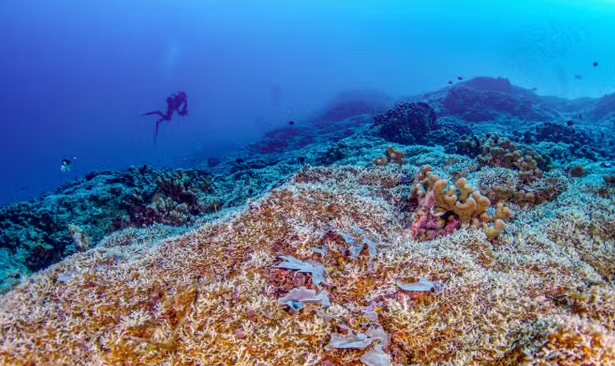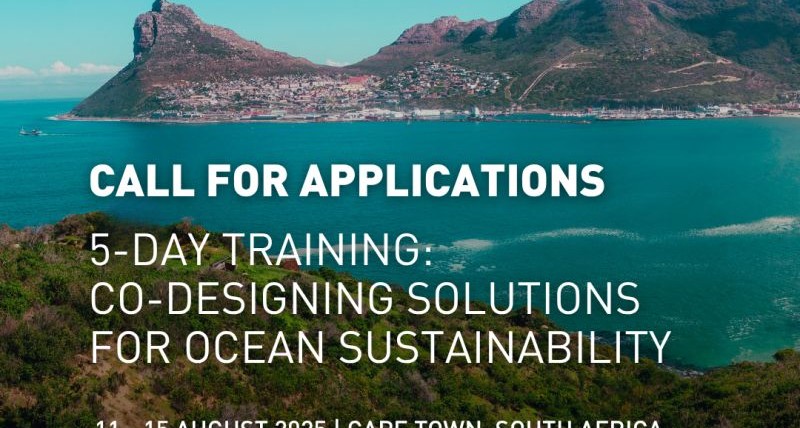Off the Solomon Islands, Scientists Measure the Largest Coral Specimen Ever Observed
Scientists have measured the largest coral specimen ever recorded, off the coast of the Solomon Islands. This exceptional discovery is considered a « rare piece of good news in an ocean of bad news » for marine ecosystems.
« A team of scientists and filmmakers from National Geographic, who visited the remote site in mid-October, initially thought the object was so large that it must have been the wreck of a ship, » reports New Scientist.
However, once underwater, what they observed, just a few hundred meters off the coast of the Solomon Islands, turned out to be what appears to be the largest known coral in the world. Visible even from space, it measures 34 meters wide by 32 meters long, making it larger than a blue whale, and is estimated to be around 300 years old, the scientific magazine continues.
Manu San Félix, one of the members of the expedition, even described it as being « close to the size of a cathedral. » In any case, it far surpasses the previous record held by another coral colony observed off the coast of American Samoa in 2019, which measured 22.4 meters in diameter and 8 meters in height.
A Healthy Colony
« Up close, the coral transforms into something spectacular, with its complex network of polyps – tiny individual creatures that have grown over the centuries to form this enormous coral – and touches of purple, yellow, blue, and bright red that break up its brown hue, » marvels CNN.
Despite its impressive size, this is indeed a single specimen, not a coral reef, which typically consists of an aggregation of multiple colonies.
What impressed scientists the most was the exceptional health of the observed colony. « Over the past two years, record ocean temperatures have triggered a wave of coral bleaching worldwide, » reminds New Scientist. Other specimens around the Solomon Islands are not spared from the phenomenon. Except for this one, which seems to be thriving despite overfishing and industrial pollution threatening marine ecosystems in the region. « A rare piece of good news in an ocean of bad news, » writes CNN.
Source: Courrier International




